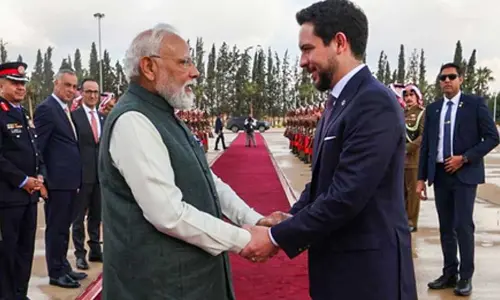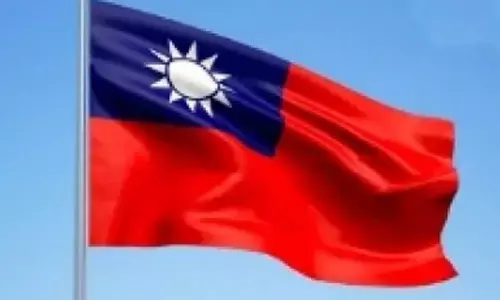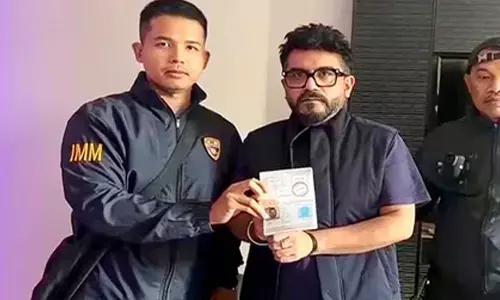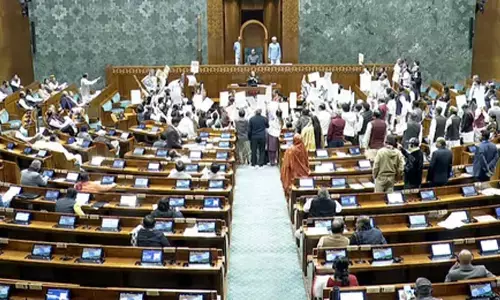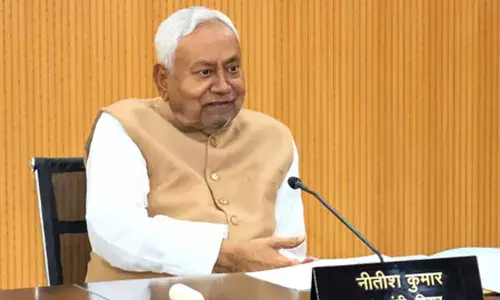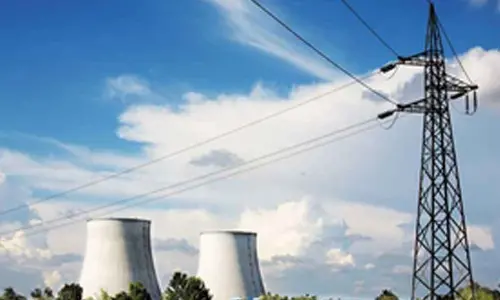Women and Trees - Simplicity for the Sake of the Planet
.jpg)
This spring, I had the privilege of volunteering in Morocco for the High Atlas Foundation (HAF), a US 501(c)(3) and Moroccan non-profit organization that focuses on aiding disadvantaged rural and urban communities through participatory development.
This spring, I had the privilege of volunteering in Morocco for the High Atlas Foundation (HAF), a US 501(c)(3) and Moroccan non-profit organization that focuses on aiding disadvantaged rural and urban communities through participatory development. Based in Marrakesh, this small but mighty organization was founded in 2000 by former Peace Corps Volunteers including its current president, Yossef Ben-Meir - a dynamic and inspiring 21st-century leader helping others realize their greatest potential.
To date, HAF has implemented projects in sustainable agriculture, namely tree and plant nurseries, organic certification, processing, technical training, and commercialization. They have also been successful in addressing other development issues in the field of education, clean water systems and the empowerment of women and youth.
My month-long volunteering stint with HAF opened my eyes to many things, but it really brought into sharp relief what I believe to be crucial, not just in developing countries, like Morocco, but in the world as a whole. HAF’s primary focus on two development tracks – female empowerment and tree and plant agriculture - could very well be a model for the salvation of our planet.
Morocco past and present
As a former Peace Corps Volunteer myself,I served in fisheries and wildlife protection in Morocco from 1982 to 1986. My current position as an Extension Agent with the University of Arizona made me a good candidate to return to Morocco as a volunteer through the Farmer to Farmer program administered by another US-based non-profit, Land O’Lakes International Development.
Part of my motivation for doing so was the awareness that the challenges faced in Morocco, particularly in rural communities, have become all the acuter over the past twenty years due to climate change. On my actual arrival, something else I noted was the remarkable improvement in infrastructure. Morocco seems to be prospering, as evidenced by the growth in new housing, roads, and technology, at least in its larger cities.
This time around my job was to help perform assessments on some of HAF’s projects in rural communities to see how they were comporting with the foundations of sustainability in terms of environmental, economic and social relationships. In addition, I provided some project planning training to staff and field personnel. However, what I took away from my work with HAF was far greater than what I could ever hope to contribute.
Common purpose and camaraderie
HAF’s main office – the heartbeat of their operations - is located in a residential apartment building in the heart of Marrakesh’s downtown area. Its staff is comprised of a small group of mainly young, university-educated women and men, including interns and volunteers and the organization is fortunate in attracting interns from a number of continents, most of whom undertake a social media role while at HAF. In this way, as well as through articles and editorials produced by Yossef, the organization’s mission, profile and success stories are well publicized, practically worldwide.
The staff’s dedication to the organization is unwavering and inspirational and owes much to the pervading sense of common purpose and camaraderie. I greatly enjoyed the day-to-day hubbub of working in this office where we shared morning mint tea, soup, and bread. At lunchtime, like clockwork, we all gathered around in the main salon to share a wonderful meal of couscous, tagine, beans or some other Moroccan favorite. Practically every day, Yossef used this occasion to check in with his staff on their projects, talking in Darija (Moroccan Arabic) and intermittently injecting a song, story or a question regarding someone’s welfare. There was no shortage of laughter, morale building and goodwill at these gatherings!
Empowerment and planting
HAF is to be credited with the passion, resources, training and participatory approach they have contributed to women’s empowerment in Morocco, particularly in the Atlas mountain region. During my visits to several HAF projects outside Marrakesh, I was accompanied by young male and female staffers fluent in Tashelhiyt (one of the major Amazigh languages) to help facilitate and translate my questions to the groups of women, working in cooperatives, with whom I had the privilege of speaking.
This represented huge progress for me; never, during my Peace Corps days back in the 1980s, had I had the opportunities to speak with groups of women like this. Nor at that time did rural Amazigh women have the opportunity to come together on a regular basis other than weddings or at the local bathhouse. Now, the advent of women’s cooperatives, whether focusing on cultivating medicinal plants, passing along the tradition of making couscous grain or processing walnuts and almonds, has lifted Moroccan women to new levels of social engagement and economic opportunity. The insights and feedback I received from these empowered women, about their work and concerning HAF, left me feeling heartened and hopeful.
The other piece of the development puzzle around which HAF has built its reputation is the distribution of trees throughout the impoverished High Atlas mountain region of Morocco. The organization achieves this by establishing fruit tree nurseries with the express purpose of providing family farmers and local communities with the tools and resources to improve their status through increased income generation. Further, in a highly overgrazed, deforested and eroded country like Morocco, trees provide much-needed soil protection and carbon sequestration.
While it took HAF eleven years until 2014 to plant their first million trees, they have continued with greatly increased momentum; in the first part of this year alone HAF succeeded in planting more than one million fruit seeds and saplings, in twelve community nurseries and with 120 schools in a total of fifteen Moroccan provinces. This statistic shows just how HAF’s reputation and expertise in establishing nurseries are in high – and growing – demand. Moreover, recent years have seen an expansion of species to include medicinal plants, which are often cultivated in nurseries run by women’s cooperatives.
To their credit, many organizations focus on one or other of these two fundamental issues – women or trees. The idea of concentrating development efforts on both may seem over-simplistic or inelegant, especially to those perhaps jaded by their own experiences of humanitarian work. Yet on reflection, the beauty of this joint approach reveals itself.
Development and humanitarian agencies around the world demonstrate continually that where efforts are successful in lifting up, educating and empowering women, a whole host of other of social improvements take place, such as increased economic opportunities and decreased teen pregnancy and domestic abuse rates, all of which lead to more stable, healthy communities and societies. Likewise, deforestation is the prime contributor to greenhouse gases worldwide; reforestation efforts, like those undertaken by HAF, can help greatly in reversing this trend if taken to scale.
The key – and the validation of the joint approach - lies in HAF’s use of the participatory methodology. HAF’s underlying commitment to promoting civil society and facilitating decentralized decision-making enables it to approach, with compassion, both ideas. It is the communities, themselves, that decide on their projects and have staked their future on female empowerment and tree and plant agriculture. Simplistic? Perhaps. Pragmatic and doable? Absolutely.
By Mark Apel
Mark Apel is an Area Extension Agent in Community Resource Development with the University of Arizona Cooperative Extension in the southwest the United States, where he is implementing programs in land use planning, sustainable development, small acreage landowner assistance and renewable energy education. He has over 28 years of environmental and planning experience and his work has taken him to Honduras, Madagascar, Mexico, and Morocco. While on sabbatical, he volunteered for a month during April and May 2016 with the High Atlas Foundation www.highatlasfoundation.org.









